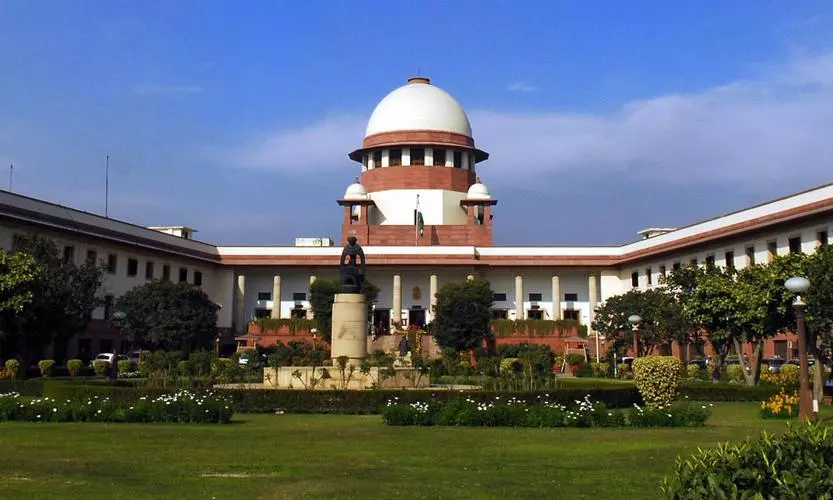
Electoral bonds scheme struck down by Supreme Court ahead of LS polls
It directed that the issuing bank shall stop issuance of electoral bonds and SBI shall submit details of electoral bonds purchased since April 12, 2019 till date to the EC.

The Supreme Court on Thursday (February 15) struck down the electoral bonds scheme calling it unconstitutional. The top court held that anonymous electoral bonds are violative of right to information, freedom of speech under Constitution.
In a landmark judgment that will have wide ramifications, it ordered the State Bank of India to disclose to the Election Commission the names of the contributors to the six-year-old scheme.
Unanimous verdicts
A five-judge Constitution Bench headed by Chief Justice DY Chandrachud delivered two separate and unanimous verdicts on the pleas challenging the scheme, delivering a major blow to the central government.
Pronouncing the verdict, the CJI said the scheme is violative of freedom of speech and expression under Article 19(1)(a) of Constitution.
The Bench said the fundamental right to privacy also includes citizens’ right to political privacy and affiliation.
It also held as invalid the amendments made in various laws, including the Representation of Peoples Act and the Income Tax laws.
It directed that the issuing bank shall stop issuance of electoral bonds and the State Bank of India (SBI) shall submit details of electoral bonds purchased since April 12, 2019 till date to the Election Commission (EC).
The top court had on November 2 last year reserved its verdict in the matter.
Scheme notified in 2018
The scheme, which was notified by the government on January 2, 2018, was pitched as an alternative to cash donations made to political parties as part of efforts to bring in transparency in political funding.
According to the provisions of the scheme, electoral bonds may be purchased by any citizen of India or entity incorporated or established in the country. An individual can buy electoral bonds, either singly or jointly with other individuals.
Only the political parties registered under Section 29A of the Representation of the People Act, 1951 and which secured not less than 1 per cent of the votes polled in the last elections to the Lok Sabha or a state legislative assembly are eligible to receive electoral bonds.
According to the notification, electoral bonds shall be encashed by an eligible political party only through an account with an authorised bank.
In April 2019, the apex court had declined to stay the electoral bonds scheme and made it clear that it would accord an in-depth hearing on the pleas as the Centre and the Election Commission had raised "weighty issues" that had "tremendous bearing on the sanctity of the electoral process in the country".
(With agency inputs)

